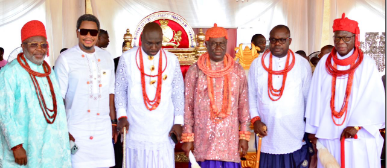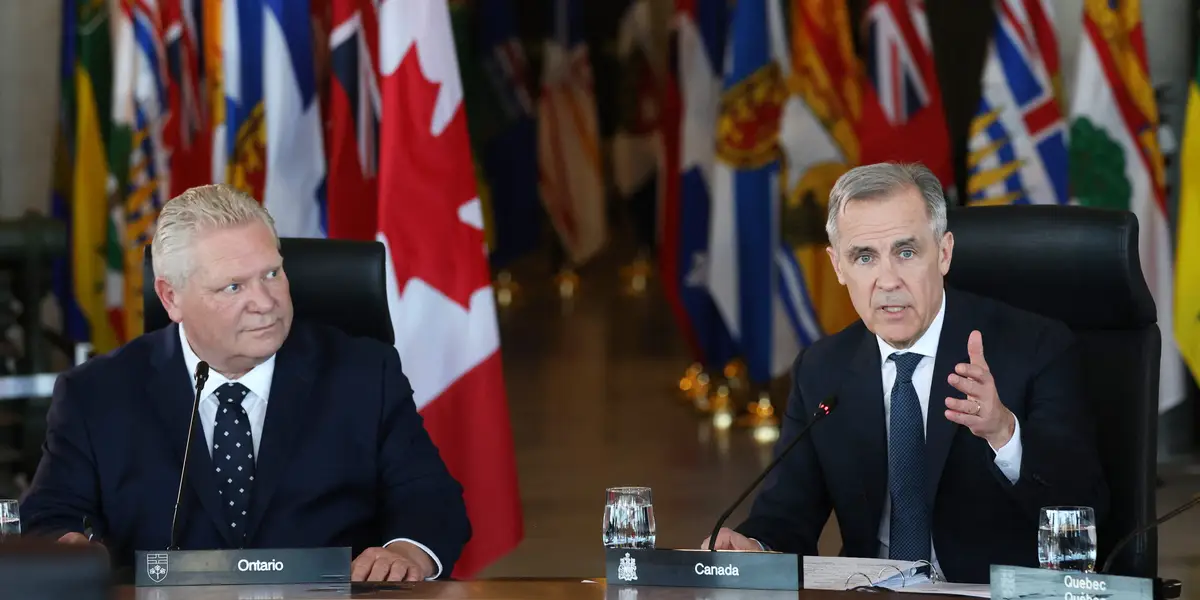Copyright thenationonlineng

OGBE-IJOH, widely described as the “pride of the mangroves”, became the centre of attention across the Niger Delta recently when His Royal Majesty, Pere Ama-Okosu Monbene III, celebrated his 10th coronation anniversary as the traditional ruler of Ogbe-Ijoh Warri Kingdom. The celebrations, which lasted five days from September 22 to 26, showcased the rich culture and values of the Ijaw kingdom. It drew an impressive crowd of indigenes, political leaders, traditional rulers and cultural enthusiasts from across the Niger Delta and beyond. By the time the monarch appeared in full regalia at the palace grounds in Ogbe-Ijoh Town for the grand finale, thousands had gathered to pay homage. Ewein Hall in Ogbe-Ijoh, headquarters of Warri Southwest Local Government Area, was filled with gaily dressed men and women, adding colour to the event. The grand finale drew friends of the kingdom, the monarch and his subjects, from far and wide. Located deep within the mangrove creeks, Ogbe-Ijoh is accessible both by land and water. The days leading up to the coronation finale saw the waterways bustling with boats ferrying guests from Warri Club, Miller Waterside, and the Main Market jetty. Others made the journey by road through Aladja, where convoys of vehicles carried indigenes and dignitaries into the town. For many, the effort underscored the importance of the occasion, and the reverence that Monbene III enjoyed from within and outside. The Ogbe-Ijoh Kingdom, founded centuries ago by the ancestor Ewein, has long been a cultural and political force within the Ijaw nation. The relocation of the council headquarters from Ogbe-Ijoh to Ogidigben in Escravos sparked a wide and wild protest that culminated in the Warri Crisis. Monbene III’s 10th anniversary became both a celebration of his reign and an affirmation of the people’s heritage and pride of the Ijaw in the area. The palace grounds were transformed into a carnival-like arena. Traditional drummers and trumpeters set the tone, while Ijaw cultural troupes performed dances that highlighted the community’s and the tribe’s famed waist movements, hips swaying and feet stamping in intricate rhythm of fast drums. Popular Ijaw musician J King Alfred thrilled the crowd with live performances of traditional highlife and Ijaw songs. Harrysong, the Nigerian pop star who traces his roots to the area, added a contemporary flair. But it was the Bayelsa State Arts and Culture Troupe stole the limelight, combining hypnotic dances with a spirited rap in the Ijaw language that electrified native Ijaw and visitors alike. Women adorned in patterned lace blouses, wrappers, and gele (head ties) that made fashion statements formed dancing circles, singing along in call-and-response style. They were joined by young men and children wearing crested white T-shirts and wrappers, showcasing generational continuity of Ijaw traditions. Masquerades later appeared, sparking excitement among children who pushed forward to catch a glimpse of the colourful, towering figures. One of the most striking features of the anniversary was the solidarity and large turnout of traditional rulers from across Delta, Bayelsa, and other Niger Delta states. More than 30 kings were in attendance, turning the event into a symbolic royal conclave. Among them were the Pere of Gbaramatu, the Ebenanaowei of Ogulagha Kingdom, the Pere of Akugbene-Mein, the Pere of Tuomo, the Pere of Isaba, the Pere of Kabowei, the Pere of Olodiama, the Pere of Iduwini, and the Pere of Oporomo. They were joined by monarchs from Urhobo and Isoko lands, including the Ovie of Uvwie, the Ovie of Oghara, the Ovie of Idjerhe, the Ovie of Ozoro, the Ovie of Okere-Urhobo, the Ovie of Ellu, the Ovie of Igbide, the Ovie of Arhavwarien, and the Odiologbo of Olomoro. Also present were the Obi of Aboh, the Obi of Atuma-Iga, the Oruarivie of Abraka, the Okobaro of Ughievwen, and others. Their collective presence gave the event a rare stamp of legitimacy and unity, underscoring Ogbe-Ijoh’s central place in the politics and culture of the Niger Delta.The event also attracted a wide spectrum of political leaders and business executives. Present were Dr. Dennis Otuaro, Administrator of the Presidential Amnesty Programme; Speaker of the Delta State House of Assembly, Rt. Hon. Emomotimi Guwor; Chairman of Warri Southwest Local Government, Chief Sylvester Oromoni; Hon Jukius Pondi, member representing Burutu Federal Constituency in the National Assembly, state lawmakers; and several government functionaries. Read Also: Niger Delta ex-agitator Amagbein hails new service chiefs From the corporate sector came Chief Tunde Smooth, a respected Ijaw leader and chairman of Smuton Nigeria Limited; Chief (Engr.) Kestin Pondi, Managing Director of Tantita Security Services Nigeria Limited, and Julius Berger’s General Manager, Renner Jensch, who was conferred with a chieftaincy title in recognition of his contributions to educational development in the region. Other indigenes and notable personalities and sons and daughters of the kingdom, included Chief Boro Opudu, Chairman of the Delta Waterways and Land Security Committee; Chief Frank Omare, Director General, Special Programmes to the Governor of Delta State; Ambassador Francis Oyimi; Chief Monday Keme; Chief Beatrice Izoukumor, the Amabenemo Ere of the kingdom; and lawyer Eric Omare. The ceremony, though, was more that the pageantry and stunning regalia and the colourful exotic Ijaw dancers, it was also an opportunity for the kingdom to demand more from the government. Speaking through his spokesman, Chief Favour Izuokumor, the Pere expressed gratitude to his subjects for their loyalty but also painted a sobering picture of the challenges facing the kingdom. The traditional ruler’s reign has been dogged by the unending tribal conflict with neighbouring Aladja community in Udu Local Government Area of the state. It was against the dark background that Izoukumor recalled that barely a year after his ascension in 2015, the renewed land dispute with Aladja disrupted peace and progress. Although relative calm has since returned, as was demonstrated by the presence of the Udu LGA Council, Chief Vincent Oyibode, he lamented that Ogbe-Ijoh remains underdeveloped despite its contributions to the state.



